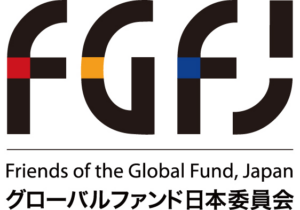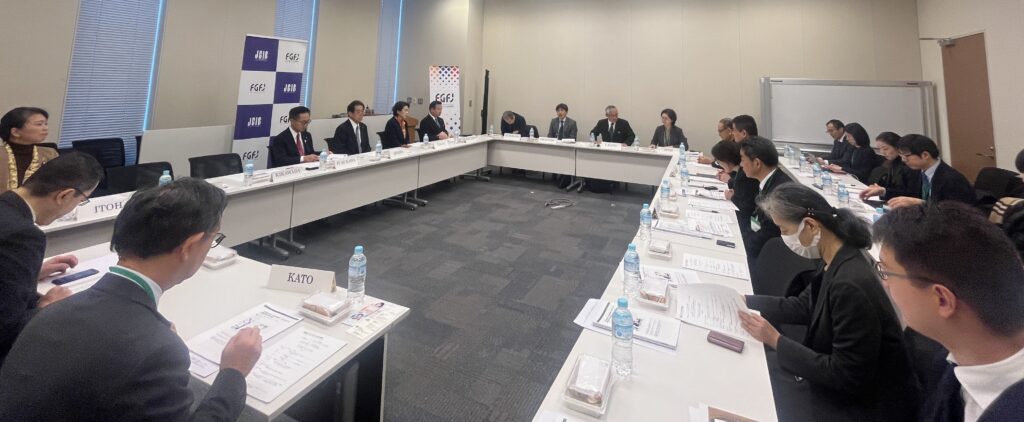
On December 18, FGFJ convened a joint meeting of the Diet Task Force and Advisory Board to commemorate World AIDS Day and discuss the latest prevention and treatment tools that could end AIDS in Japan and in low- and middle-income countries across the globe. The meeting was attended by FGFJ’s Diet members, Advisory Board members, and three guest speakers who have been involved in HIV prevention, treatment and support of people affected by AIDS in Japan and abroad for many years.
Prof. Junko Tanuma, professor of infectious diseases, began the meeting with a presentation on the progress of HIV prevention and treatment over the past decade and explained the legacy of the HIV response, such as improvement in access to care (corresponding to the context of promoting UHC), implementation and dissemination of civil society participation in health policies across the globe, and development of antiviral drugs and establishment of a global infrastructure for molecular epidemiological research. However, she pointed out some challenges in the context of Japan, one of which was the delay in the dissemination of preventive measures in the country.
Mr. Kohta Iwahashi, president of akta*, explained in more detail about the current situation of the HIV response in Japan, including that PrEP, which had previously been approved as a treatment, was finally approved as a method for preventing HIV infection in Japan as of August 2024. He emphasized that PrEP is a key component of prevention in the fight to end AIDS and that key challenges such as high prices and regional disparities in availability need to be tackled in Japan. Dr. Ikuma Nozaki of the National Center for Global Health and Medicine (NCGM), who also served as a member of the Global Fund‘s Technical Review Panel until recently, explained the role that the Global Fund has played in fighting HIV in low- and middle-income countries as well as the challenges it must overcome to achieve the Sustainable Development Goals (SDGs) by 2030.
The speakers and participants engaged in a lively discussion on how to make an AIDS-free generation possible through measures including game-changing tools, research and innovation, and community outreach. It was also recognized by the participants that the response to AIDS in Japan and the support for the AIDS response in low- and middle-income countries are linked.
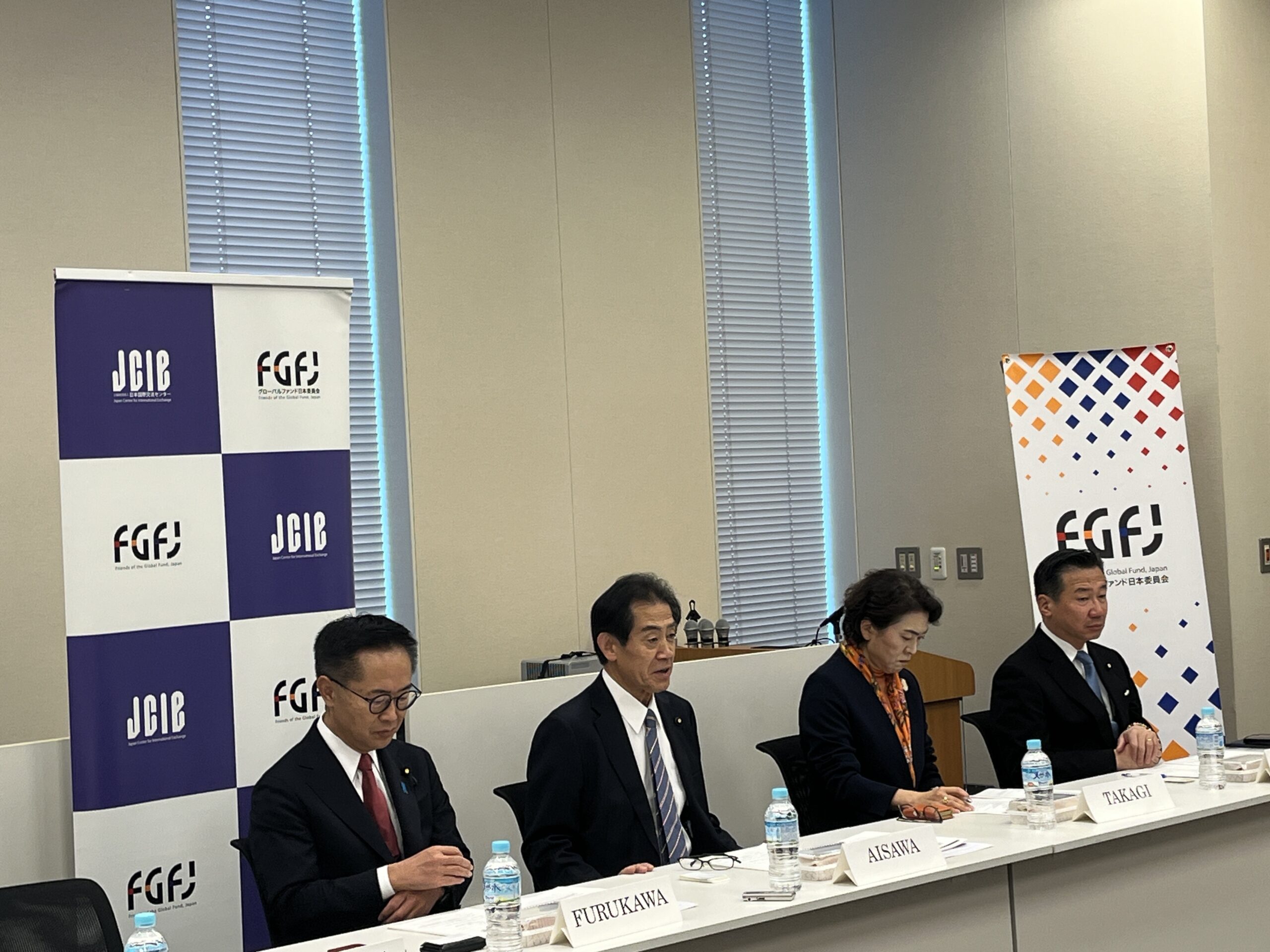
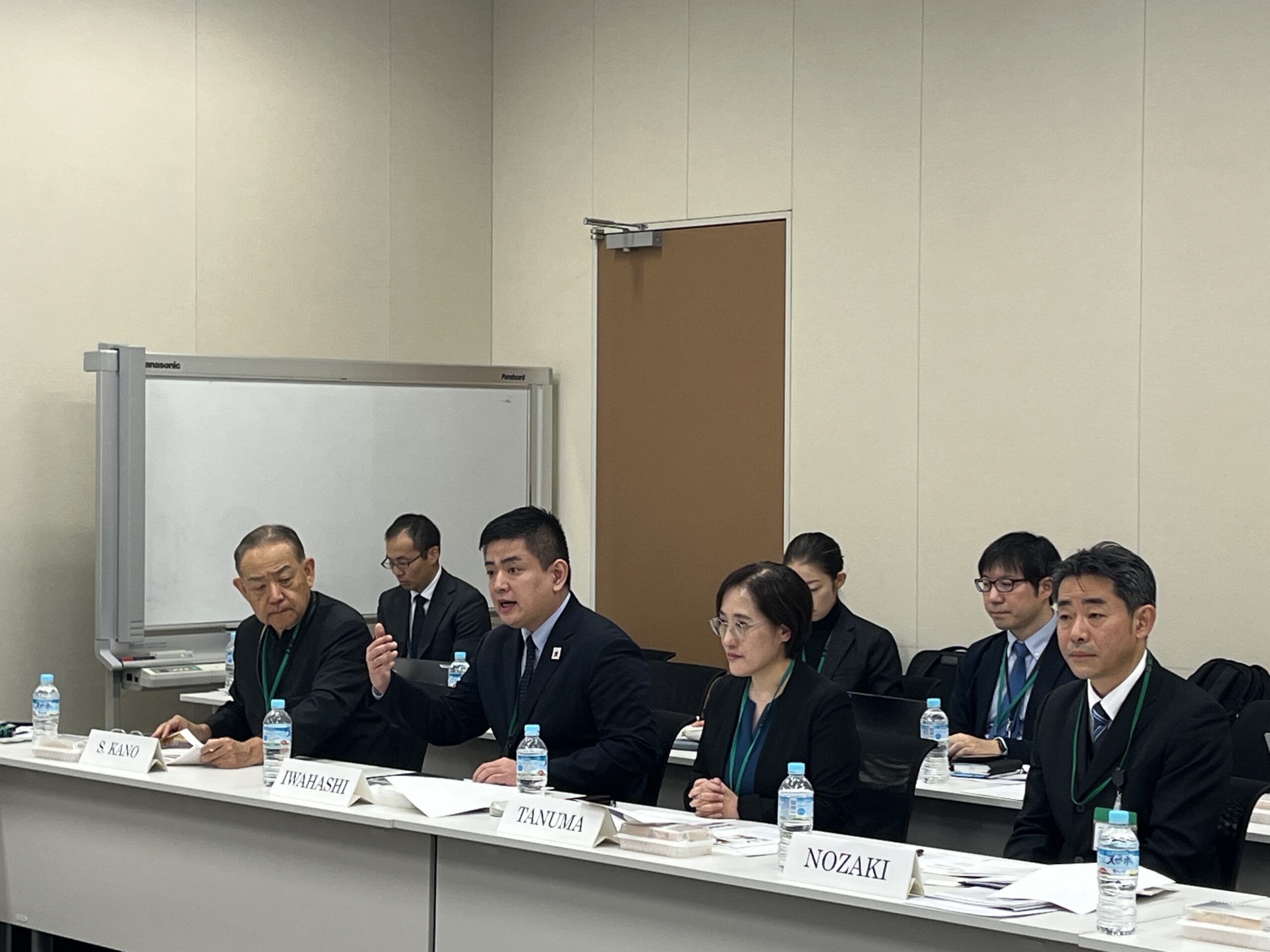
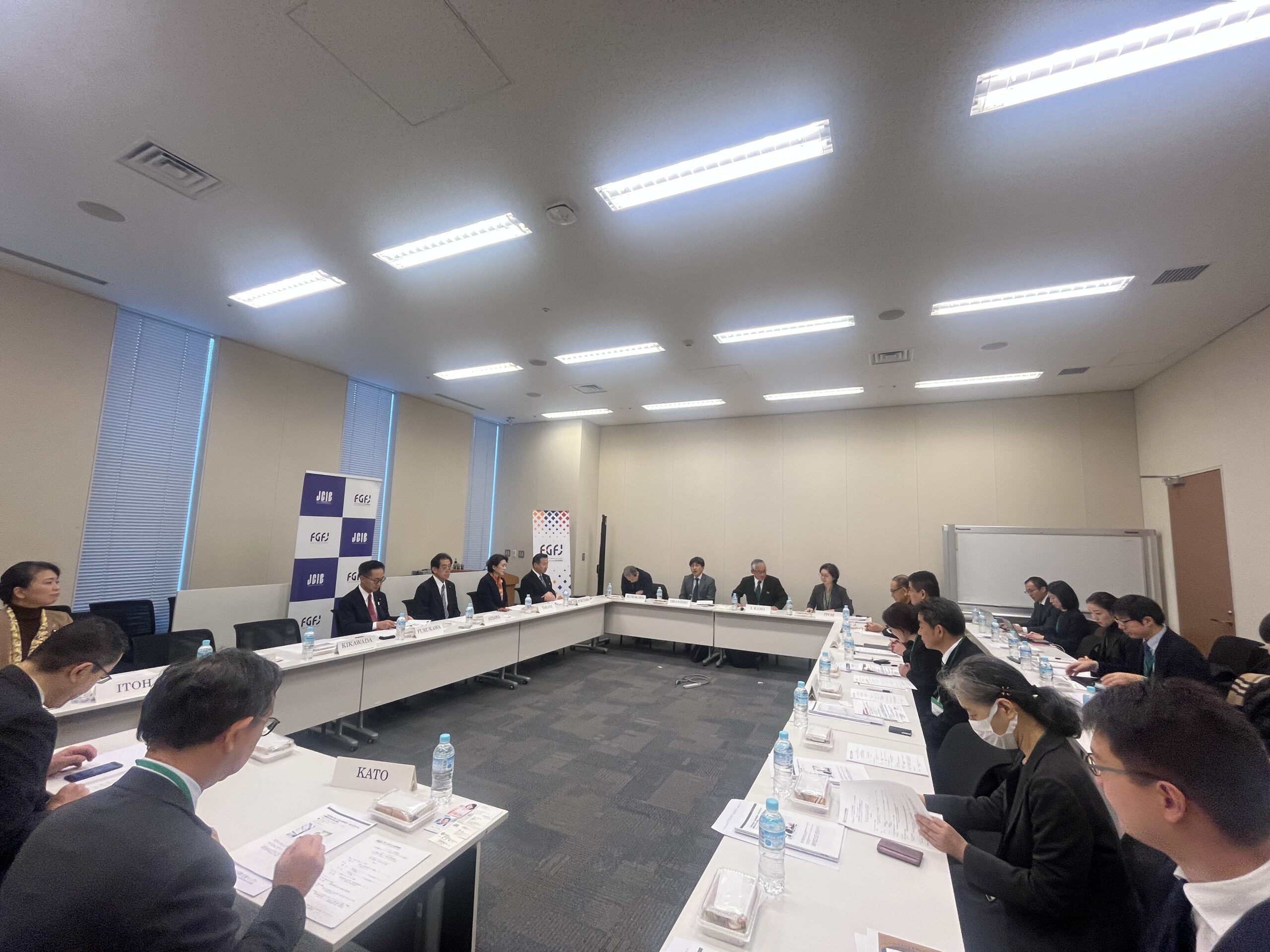
*akta is an information center for sexual health, including HIV/AIDS, in Tokyo’s Shinjuku Ni-chome. For more information about akta, please check out our interview with Mr. Iwahashi in the FGFJ x Asahi GLOBE+ interview series.
The FGFJ Diet Task Force is a multi-party initiative that brings together Diet members to examine ways to broaden Japan’s international role in combating the global threats of AIDS, tuberculosis, malaria, and other communicable diseases. The task force convenes several times a year with experts and leaders from around the world. For more information, visit the FGFJ Diet Task Force page.
